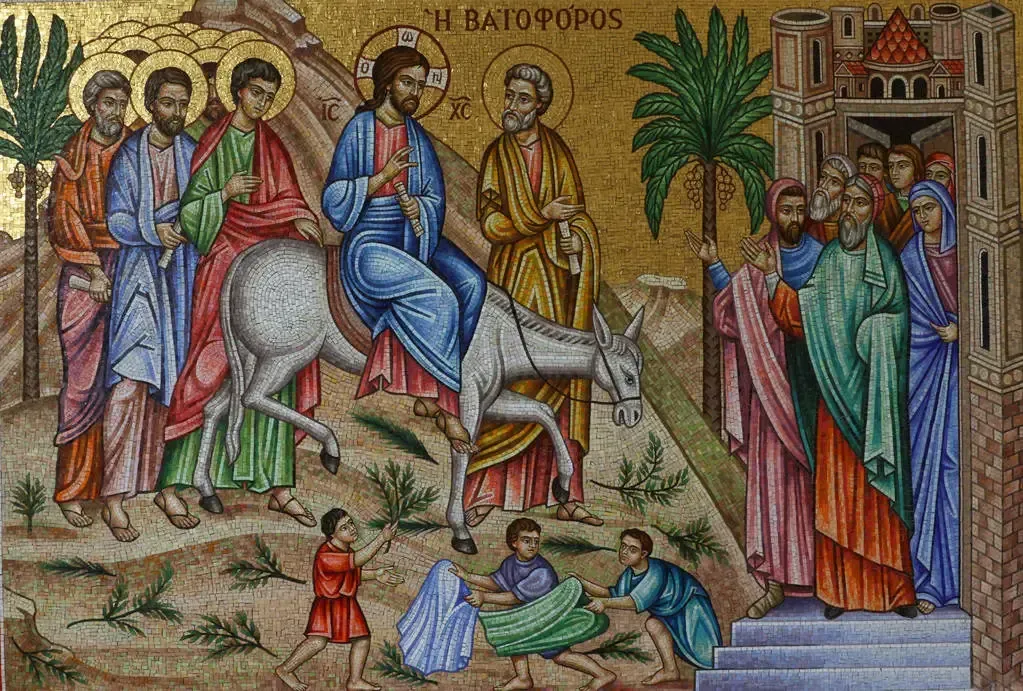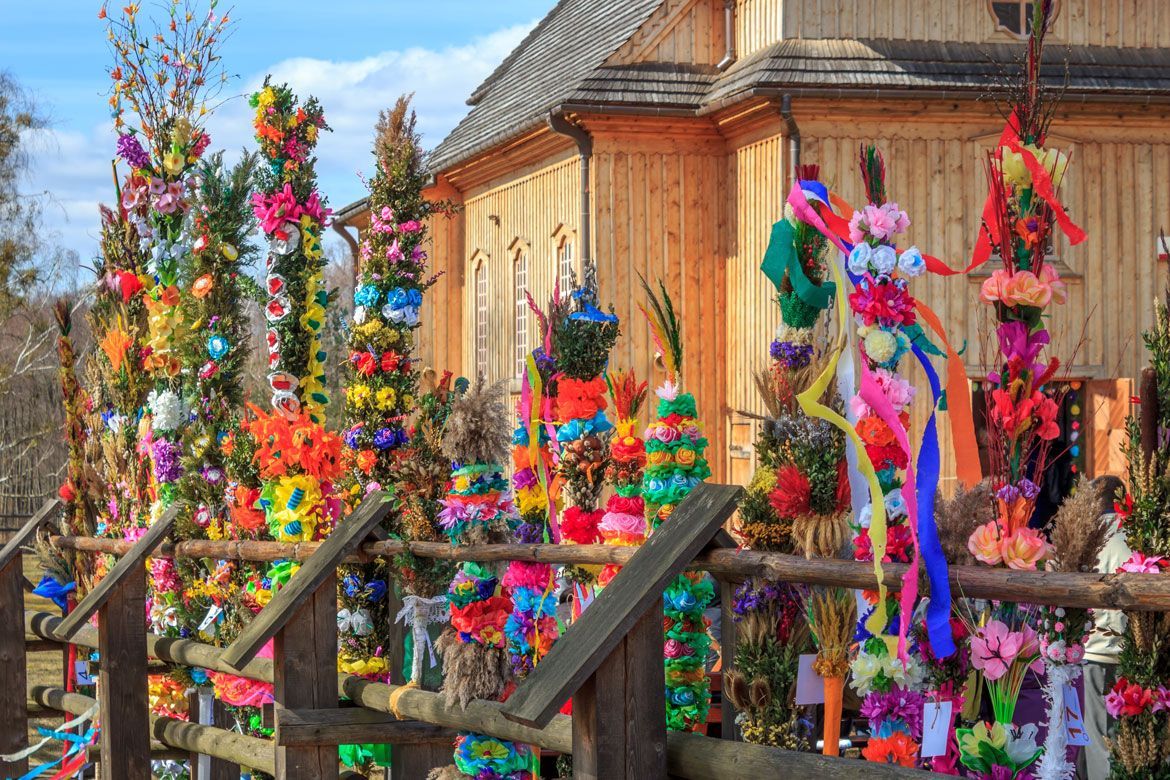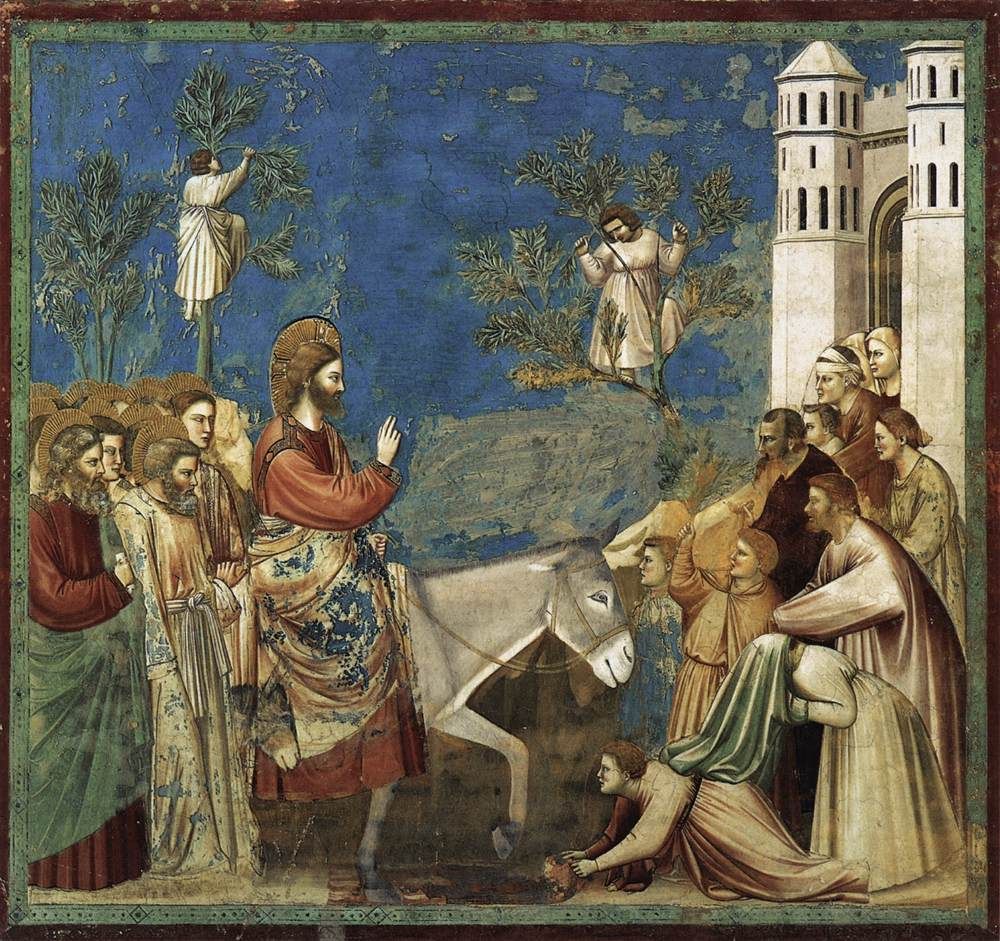Message of Abbot Paul - Palm Sunday - 24th March 2024
Abbot Paul • March 23, 2024



I apologise for not publishing a message yesterday, my first failure in over four years! The truth is that I was dealing with a number of issues before going out to visit a friend that I clean forgot to send off the message I had already prepared. It was just one of those days. However, I did have a good evening with my friend and and excellent night’s sleep, which is unusual for me. Today is Palm Sunday, the first day of Holy Week.
‘Hosanna! Blessed is he who comes in the name of the Lord! Blessed is the kingdom of our father David that is coming! Hosanna in the highest!’ We are struck on Palm Sunday by the stark contrast between the joyful exuberance of the blessing of palms and the bleak reality of the Mass that follows, centred on the Passion. That first Holy Week, the disciples were unprepared for what was to follow on from the triumphal entry into Jerusalem. They hadn’t really understood the words of Jesus that he would suffer and die so as to enter fully into his glory. The same crowds, who welcomed him into Jerusalem on Palm Sunday, would soon be shouting, “Crucify him! Crucify him!” Some would mock him saying, “He saved others, he cannot save himself,” little realising the truth concealed in their words, for on the cross Jesus didn’t need to save himself but he did save everyone else.
Mark’s Gospel, short and succinct, contains a highly developed theology of the cross. More than Matthew, Luke or John, Mark emphasizes the abandonment of Jesus and how he faced his arrest, trial, condemnation, crucifixion and death alone. At Gethsemane, his disciples can’t fathom his fear and distress or understand the meaning of his words, “My soul is sorrowful to the point of death.” They fall asleep as he prays not to be put to the test, for “the spirit is willing but the flesh is weak.” He goes on to die in total isolation and, after his death, it’s a centurion, a gentile, not one of the disciples, who acknowledges that, “Truly, this man was a son of God.” Only the women are there, but at a distance, frightened and confused.
The glory of Jesus was to suffer and die for our salvation. Paul tells the Philippians that from the moment of his death on the cross, “all beings in the heavens, on earth and in the underworld, should bend the knee at the name of Jesus and every tongue proclaim that Jesus Christ is Lord, to the glory of God the Father.” Christ’s Death and Resurrection are a great comfort to all who see in Jesus the image of the unseen God. In Christ’s Passion we derive great consolation as we often find our own cross hard to bear. It wasn’t easy for Jesus: it’s clear from Mark’s Passion narrative that he experienced human vulnerability, distress, fear, agitation and grief. He begged the Father that this hour might pass him by and the cup of suffering be taken from him. He was indeed, “a man like us in all things but sin.”
Contemplating Our Lord’s Passion this week, let us thank him for his sacrifice of love that sets us free to love God and our neighbour. We pray that we too may give our lives as sacrifice, not thinking of ourselves and our own needs, but putting others first. Let us thank him for showing us the meaning of the mystery of life, that, by patiently taking up our own cross every day and following him, we may come to share in the glory of his Resurrection as we now share in his suffering and death. Amen.









